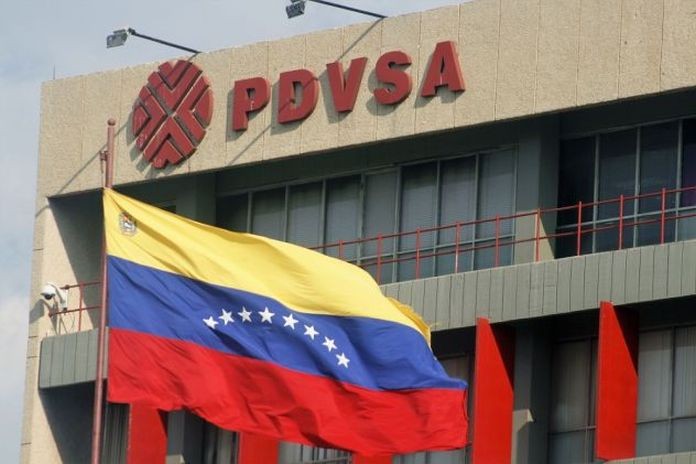By Andreína Chávez Alava
CARACAS, (venezuelanalysis.com) – Venezuela’s crude output continues last year’s path while exports dropped to their lowest level in seven months as Venezuelan state oil company PDVSA tightens sale contracts.
The Caribbean country pumped 686,000 barrels per day (bpd) in January, according to secondary sources from the latest Organization of Petroleum Exporting Countries (OPEC) report, 20,000 bpd more than the previous month. For its part, PDVSA reported a higher figure of 732,000 barrels, above December’s 669,000 bpd.
International analysts have predicted that crude production this year will not vary from the 690,000 bpd averaged in 2022 as long as Washington’s blockade against the country’s oil industry remains largely unaltered.
Recent licenses issued by the US treasury department to US company Chevron, Spain’s Repsol and Italy’s Eni only allow taking Venezuelan crude to offset PDVSA debt while severely limiting any cash payments.
Since May 2022, Eni and Repsol have sent several crude cargoes to Europe until the deal was suspended in August to renegotiate terms. Shipments are reportedly set to resume soon with one cargo assigned to Eni for February loading.
The European corporations, as reported by Bloomberg, are requesting greater operational control over their crude extraction ventures while Caracas has demanded more investment in gas projects. The two firms co-own the gas producer Cardón IV company and each has three joint oil ventures with PDVSA. No official statement has been released regarding the talks or soliciting a new sanctions waiver from Washington.
Chevron’s license, obtained in November, authorizes it to pump and sell Venezuelan crude from its four 200,000-bpd total capacity joint ventures with majority shareholder PDVSA, but the firm is focused on loading from existing inventories instead of uplifting production. Chevron executives have stated that at least 18,000 wells are in need of restoration.
Last month, the California-based company was assigned six cargoes by PDVSA totaling 2.3 million barrels of Venezuelan heavy crude sent mainly to the company’s Pascagoula refinery in Mississippi while some cargoes were sold to other US refineries, Phillips 66 among them. Chevron will reportedly ship over 100,000 bpd in February.
Despite the renewed Chevron cargoes, the South American country saw its export numbers plunge with 558,419 barrels per day of crude and refined products shipped in January, a 19 percent dropped compared to December. The figure represents the lowest level since July 2022 when the country carried 460,323 bpd of crude and fuel.
The decline reportedly responds to PDVSA’s new president Pedro Rafael Tellechea ordering a freeze of crude and fuel exports in early January to address payment defaults from buyers, forcing vessels to wait near Venezuelan ports for authorization to load.
According to internal documents seen by Reuters, PDVSA has now set tougher rules for exports, including full payment in cash before customers receive oil while partners that pay for oil and fuel with goods and services will have to provide them in advance as well.
The documents remark that the new regulations would put PDVSA “in a favorable business position because it would secure income for the country that is essential to solving its economic situation.”
No official statement has been made by PDVSA or the Venezuelan oil ministry regarding the halted exports or the prepayment conditions.
The imposition of US sanctions against Venezuela has created hurdles with payments as PDVSA was barred from the international financial system, forcing the company to resort to intermediaries and sell its oil and refined products with big discounts and payment delays. Prior to sanctions, the South American nation’s main customers were US refineries. Currently, most crude shipments are destined for China.
Following the 2017 financial sanctions against PDVSA, the US Treasury imposed an oil embargo in 2019 followed by secondary sanctions. The measures sent crude production from 2 million barrels per day in 2017 to less than 500,000 bpd in 2020, shrinking the country’s main source of income.
Caracas has denounced that Washington’s blockade has trapped the country in an endless economic crisis and that recent sanctions waivers issued by the Treasury’s Office of Foreign Assets Control (OFAC), establishing cash payments bans and limited timeframes for transactions, are neocolonial tools to condition trade between sovereign nations.
Recently, president Nicolás Maduro blasted the OFAC license given to Trinidad and Tobago to import natural gas from Venezuela’s offshore Dragon field but barring cash payments. Trinidad’s officials have been holding meetings in Caracas to reach an agreement. Caribbean nations have repeatedly called on Washington to remove sanctions against Venezuela’s energy sector to revive the PetroCaribe oil cooperation initiative.
In recent years, Venezuela has turned to Iranian assistance to circumvent the US measures and reactivate its Western-designed oil infrastructure, with Tehran providing condensate, crude, other inputs and even technicians. On February 3, Tehran and Caracas signed a contract to revamp the 955,000-bpd capacity Paraguaná Refining Complex, located in western Falcón state.
The 100-day plan will see National Iranian Oil Refining and Distribution Company (NIORDC) partner with PDVSA to repair five of Paraguaná’s nine distillation units combining Chinese and Iranian parts and equipment to replace US technology and boost fuel production, sources told Reuters. A larger overhaul could take place between 2024 and 2025.





